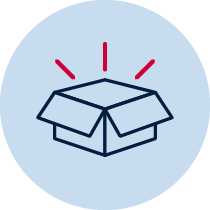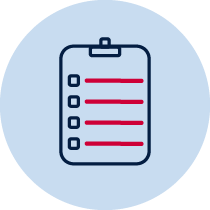Chance – Build your own adventure
Students are asked to identify predictions as ‘certain or uncertain’, ‘likely or unlikely’ or ‘possible or impossible’.
 |
 |
 |
 |
| Resource required | Verbal recording | Teacher observation | Whole class |
Statistics and probability – chance
- Describes mathematical situations and methods using everyday and some mathematical language, actions, materials, diagrams and symbols MA1-1WM
- Recognises and describes the element of chance in everyday events MA1-18SP
Syllabus content descriptors
Identify practical activities and everyday events that involve chance (ACMSP047)
Linked syllabus content
Identify outcomes of familiar events involving chance and describe them using everyday language, such as ‘will happen’, ‘won’t happen’ or ‘might happen’ (ACMSP024)
National Numeracy Learning Progression mapping to the NSW mathematics syllabus
When working towards the outcome MA1‑18SP the sub-elements (and levels) of Understanding chance (UnC1-UnC2) describe observable behaviours that can aid teachers in making evidence-based decisions about student development and future learning.
Materials
- quality picture book for example: Harry the Dirty Dog by Gene Zion
- chance build your own adventure downloadable
Teacher instructions
Read a quality picture book to the class, stopping at various points in the story. Ask students to predict what ‘might happen’ next in the story. Other students should then be asked to identify predictions as ‘certain or uncertain’, ‘likely or unlikely’ or ‘possible or impossible’. They may use the task cards to display their answers. Students can be asked to rank predictions and explain why they think one event is more likely than another. They can check their predictions as you continue to read the story.
Students can be asked to state an unlikely event and then predict the rest of the story in case the unlikely event actually occurs.
The activity can be done with partners using the think-pair-share strategy.
For example, read the book Harry the Dirty Dog by Gene Zion. Some suggested questions:
- What the story is likely to be about?
- What do you think is Harry’s favourite thing to do?
- When students provide an answer, ask-- Is that likely or unlikely?
- Will the family recognise Harry? (likely, unlikely, certain, uncertain, might happen, might not happen)
- Will Harry play in the dirt again? (likely, unlikely, certain, uncertain, might happen, might not happen)
Student instructions
- What do you think may happen next in the story?
- Is that likely or unlikely?
- Which of these predictions do you think is more likely to happen? Why?
Possible areas for further exploration
Students need to understand that their predictions may not come true.
Where to next?
- Compare the chance of events and describe events as being ‘more likely’ or ‘less likely’.
- Students can draw a picture of an unlikely event and make a class chance book (never-ever).
- Students place four counters (for example, three blue and one white) into a bag. The teacher discusses with the students the chance of drawing out a blue block.
Possible questions include:
- Would it be ‘likely’ or ‘unlikely’ to draw out a blue counter? Why?
- What colour is most likely to be drawn out? Why?
Syllabus
Please note:
Syllabus outcomes and content descriptors from Mathematics K-10 Syllabus © NSW Education Standards Authority (NESA) for and on behalf of the Crown in right of the State of New South Wales, 2012